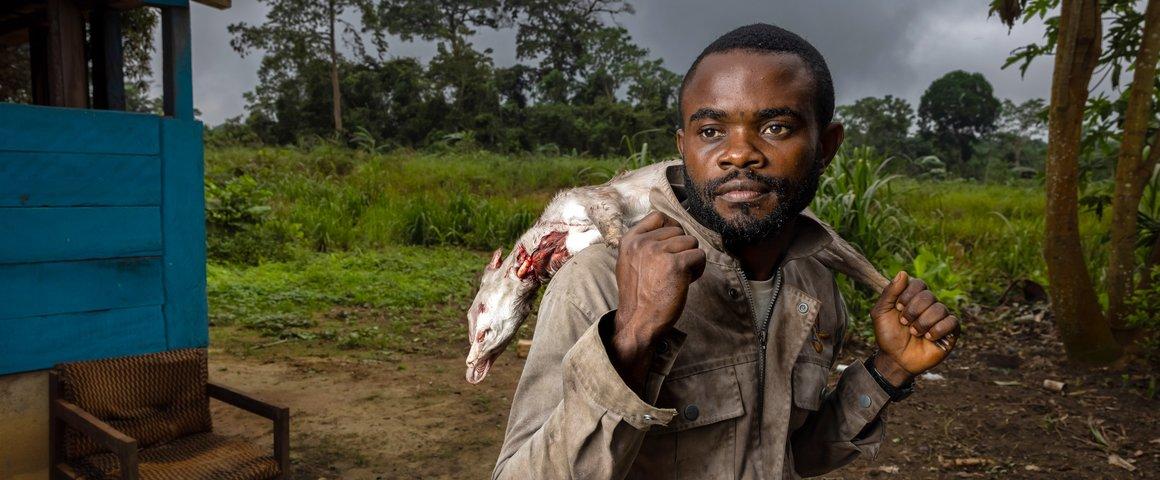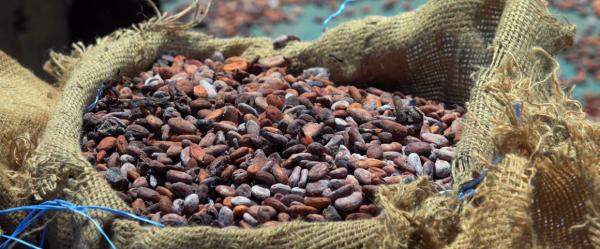Expert view 23 January 2026
- Home
- CIRAD news
- News
- Community-based surveillance to combat pandemics
Preventing pandemics: communities are key

In Gabon, hunters are being trained to detect even weak signs of epidemic emergence in wildlife © Brent Stirton-Getty Images for FAO, CIFOR, CIRAD, WCS
"When we think about disease prevention, we usually imagine experts in lab coats taking samples in search of viruses. This is called 'active surveillance', and it's crucial in understanding how pathogens are transmitted from animals to humans. However, it's not enough to stop disease emergence at source. This is where communities come in: they are in the front line in terms of risks, and are hardest hit once diseases take hold."
Marisa Peyre is an epidemiologist with CIRAD and co-founder of PREZODE, an international initiative set up to reduce risks and implement early epidemic detection systems in as many countries as possible. She stresses that recognizing the role communities play and engaging them in pandemic prevention allows for better detection and subsequently faster action to control disease spread.
"We can no longer just see local people as 'sources of data'", Marisa Peyre says. "They are players in their own right in surveillance systems, the first links in the chain, and work daily at grassroots level. PREZODE is also promoting dialogue between livestock farmers and doctors, for instance, taking a 'One Health' approach, to determine quickly if there is a link between unsual symptoms in humans and sick animals in farms or in the forest."
Putting communities at the heart of new detection systems
Members of the PREZODE initiative have recently taken part in several political and scientific events to promote the inclusion of communities in surveillance systems. The Paris Peace Forum, the Union World Conference on Lung Health and COP28, which finished recently, are just some examples.
At COP28, the France Pavilion hosted a session co-organized by PREZODE and Unitaid, devoted to improving healthcare systems in the light of climate change. Olivia Ngou, Director of the NGO Impact Santé Afrique (ISA), set out the role of communities in implementing strategies to combat malaria, which is transmitted by mosquitoes: "Traditional control campaigns rely on a rainy season schedule that no longer holds. With climate disruptions, mosquitoes are moving, and previously unaffected areas are experiencing epidemics. We need strong commitment from local people to better understand these changes and develop truly effective control strategies". Malaria causes nearly 700 000 deaths annually, 50% of them among children and pregnant women. These malaria-affected populations are often those most at risk of new potentially pandemic diseases.
Olive Mumba, Advisor, Community Engagement COVID19, Global Fund, emphasizes that strengthening community systems goes hand in hand with strengthening healthcare systems: "Poverty, agriculture, and food insecurity are socio-economic determinants that impact the development of infectious diseases in an area. Including populations in detection systems inevitably means better addressing their needs." She also highlights the importance of establishing trust between communities and scientists: "Vaccine inequalities, lack of trust, lack of information... Community trust is crucial, and it's only possible if we involve them from the outset".
Success with initial protocols in Gabon
The PREZODE initiative has built a methodology to test the first early surveillance networks with community-based approaches. A trial in Gabon has trained hunters to detect early signs of diseases in domestic or game animals. This allows to collect samples from suspicious animal cases which are analysed by the laboratory. These actions enable the rapid detection of potential zoonoses, diseases transmitted from animals to humans. The protocol was implemented under the SWM programme and thanks to the efforts of the Centre interdisciplinaire de recherches médicales de Franceville (CIRMF) and the Institut de recherches en écologie tropicale (IRET) in Libreville.
Other countries are establishing similar networks. "We are in the first operational phase of the initiative", Marisa Peyre explains. "Cambodia, Cameroon, Guinea, Madagascar, Senegal, etc, etc... The aim is to build a network that is strong and wide enough to catch even weak signs of emergence". PREACTS and in particular its phase 1 AFRICAM, PREZODE's first field programme, is working in synergy with other research projects, such as BCOMING in Cambodia and EBO-SURSY in Guinea.
This methodological framework was discussed during the Global Technical Consultation on the Strategic Framework for Early Warning of Animal Health Threats, organized by FAO in Rome in November. According to Fernanda Dórea, Global project Coordinator (Early Warning and Data Mining) at FAO, "the methodology proposed by PREZODE allows for the step-by-step construction of early detection systems that integrate communities and enable the transmission of information and rapid response from local to global levels and from high-level decision makers back to communities".



























